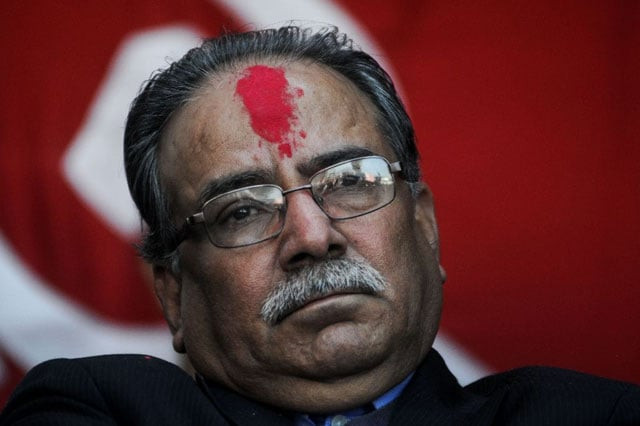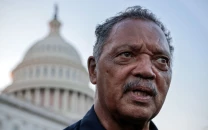Nepal's Maoist prime minister resigns
Pushpa Kamal Dahal is stepping aside after less than 10 months in office.

Former Nepalese Maoist leader Pushpa Kamal Dahal led a decade-long insurgency before transforming the rebel movement into a political party after a 2006 peace deal. PHOTO: AFP
Pushpa Kamal Dahal, a former guerrilla chief who led the decade-long Maoist insurgency before entering politics, is stepping aside after less than 10 months in office.
He is expected to be succeeded by three-time former prime minister Sher Bahadur Deuba, who heads the largest party in the current coalition government.
"I announce my resignation from the post of prime minister today, right now, with a pledge to continue being active for the upliftment of the country and the people as a politician, parliamentarian and a citizen," Dahal said in a televised speech in which he catalogued his government's achievements.
Dahal, who still goes by his nom de guerre Prachanda, or "fierce one", had promised to step down after holding local elections as part of the agreement that brought him to power last August.
Local elections were held in three of the country's seven provinces 10 days ago.
Deuba's appointment is expected to be confirmed in a parliamentary vote within the next 10 days.
Nepal seeks investment opportunities in Pakistan
Dahal, 62, came to power after withdrawing support from the then-government and realigning his Maoist party with Deuba's centre-right Nepali Congress.
It was an uncomfortable alliance -- at the height of the civil war Deuba, then prime minister, had announced a five million rupee ($50,000) bounty for Dahal's capture, dead or alive.
As part of the agreement that brough Dahal to power, the Maoist leader promised to hold long-delayed local elections before handing the premiership to Deuba.
But Dahal split the local polls - the first in 20 years - into two phases because of the threat of violence from ethnic minority groups in the southern plains bordering India.
Dahal had come to power promising to address the grievances of the Madhesi minority, who say the current political system leaves them marginalised, by amending the constitution - a promise he has failed to keep.
The repeated delays prompted an alliance of parties representing the ethnic group to quit the ruling coalition in March.
Only the first phase of the local polls has so far been held. The second is scheduled for June 14 but the Madhesi parties have said they will boycott it unless the constitutional amendment is passed.
Observers have questioned whether a hastily formed new government can win enough support in parliament to get the amendment through before the polls.
The charter change is fiercely opposed by the main opposition party, the second largest block in the parliament.
"It will take at least a week for the next government to form. So there is a sense of threat to the second phase of the local elections," said political analyst Chandra Kishor Jha.
The local elections - if held in time - will pave the way for provincial and national polls, which must take place by January 2018 -- the final step in the drawn-out peace process.



















COMMENTS
Comments are moderated and generally will be posted if they are on-topic and not abusive.
For more information, please see our Comments FAQ